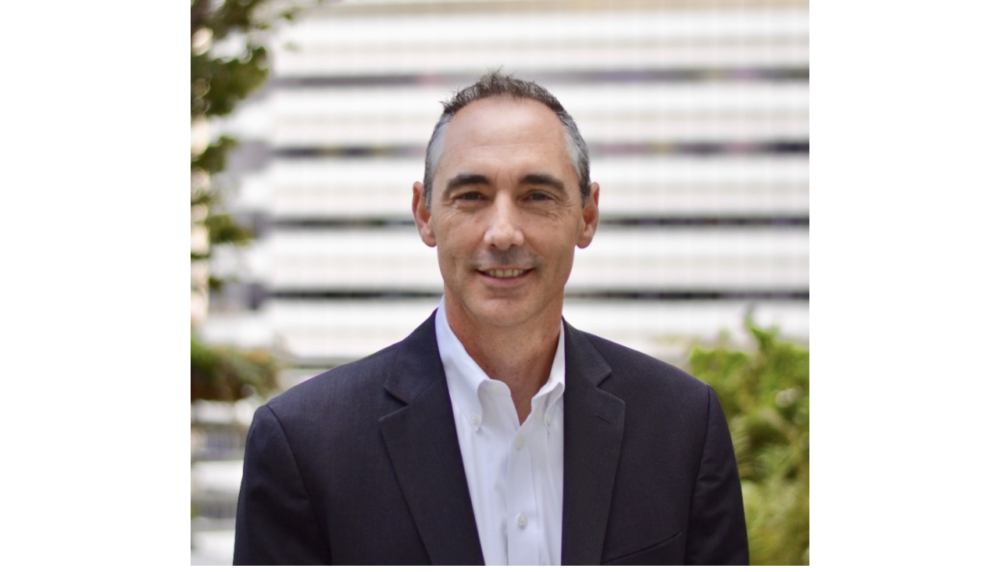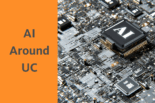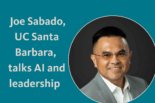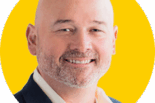Tom Andriola became vice chancellor of Information, Technology & Data at UC Irvine in September 2019. Most recently, he spent six years as UC system CIO at the UC Office of the President. In that role, he focused on building and connecting a universitywide community of IT professionals. Below he describes the transition to campus life.
Describe your role at UCI
As vice chancellor of Information, Technology & Data, I oversee all of the IT functions across the UC Irvine enterprise. But our campus and health system CIOs, along with other school leaders, are responsible for driving not just the operation but also the strategic relationships and priorities with our stakeholders. We all work together to help the enterprise make strategic investments in technology and data. This includes a very aggressive vision for the College of Health Sciences in the future of health and medicine, and the role of our data platform. I also play an external-facing role with Applied Innovation, which is our incubator, helping connect it to the broader business ecosystem.
What are your priorities?
I spent my first few months trying to get a basic understanding of UC Irvine. Like all of our campuses, it’s a large, complex, and distributed place with a lot of tentacles. But then the world changed around the middle of March with COVID-19. Since then it’s been heads down trying to adapt all aspects of the university to the realities of the pandemic. While it’s been a lot of work and very stressful at times, it’s also forced me to dig in on many topics that likely would have taken longer to engage with. For example, the specific interworking of the residence and dining halls as we’ve adapted how they need to work in the COVID-19 era. Only recently have we been able to start re-focusing on the broader strategy for data and technology for UCI’s future.
What is your connection with UC Health?
I continue as the UC Health CIO and, among other things, coordinate the Leverage Scale for Value (LSfV) IT initiatives. It fits well with my background and the relationships I’ve built over the years with UC Health. Most recently, I was asked to coordinate the effort to bring together the first research data set of COVID-19 tested patients across all UCs. Not only are our researchers using it, but also it’s gotten national attention with a request to combine our data here in California with other large institutions and federal organizations
What is different being on a campus?
The biggest difference is just perspective. I describe it like this: At the Office of the President you have this balcony view of the university, seeing all the campuses and health systems and appreciating how they’re all different but also the same in certain ways. It was like watching 17 ballroom dance partners on the dance floor. Now, I feel like I’m down on the dance floor, and the issues at ground level look very different than when I was up on the balcony. It’s not better or worse; it’s just different. I appreciate getting a completely different perspective of how our university is so successful at its mission and at meeting the challenges we face.
What initiatives have you planned?
I’ve launched a blog about how data, technology, and the role of IT are reshaping our world. We’re naming it, “Gradually, Gradually, then Suddenly.” You might recognize that – it’s a twist on a Hemingway quote – but we’re using it to highlight how it’s the nature of technology to change things slowly until it hits a critical mass, like with smart phones, or a Black Swan event like COVID-19. This aspect of technology is what I’m excited about – the organizational impact, the people change, the opportunity to think differently. Having a channel to talk more about this will be fun as I continue to shape my role.
Is UC mobility an advantage?
When I joined the university, one of my observations was how infrequently people seemed to move between locations. While CIO for the UC system, one of my goals was to create a culture where such movement would be considered part of the career path for our IT professionals. I think our destiny as a community of 8000+ lies in designing our strategies for people, talent, and opportunity. UC only gains when people who know our system stay and continue to serve its mission. I’m passionate that that’s where we need to be.







